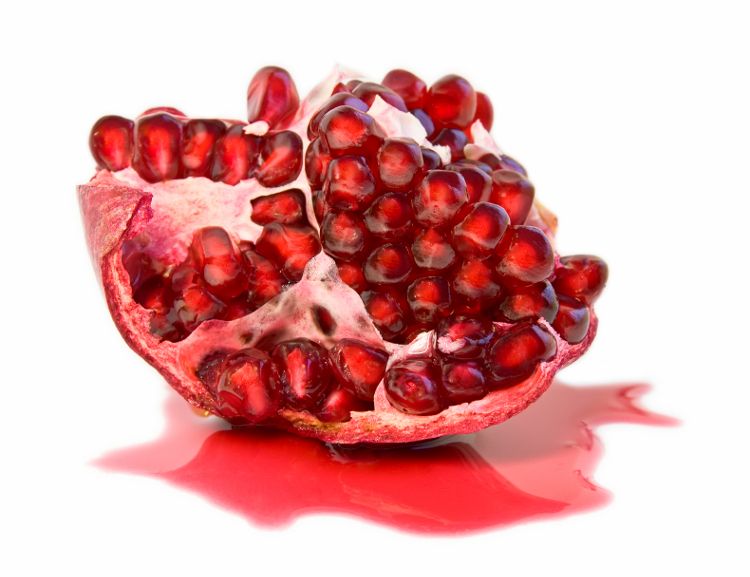ABC-AHP-NCNPR Botanical Adulterants Prevention Program releases bulletin on adulteration of pomegranate products
The bulletin is an update of the article on pomegranate adulteration published in ABC’s peer-reviewed journal HerbalGram in 2016.
Photo © iStockphoto.com/-AZ-

The ABC-AHP-NCNPR Botanical Adulterants Prevention Program (BAPP; Austin, TX) released a Botanical Adulterants Prevention Bulletin on pomegranate (Punica granatum) juice and extracts. The new pomegranate bulletin was co-authored by John H. Cardellina II, PhD, an expert in natural products chemistry and analysis, and Stefan Gafner, PhD, American Botanical Council (ABC; Austin, TX) chief science officer and the technical director of BAPP. The bulletin is an update of the article on pomegranate adulteration published in ABC’s peer-reviewed journal HerbalGram in 2016.
At least three different forms of adulteration have been reported in pomegranate products in the global marketplace: (1) pomegranate juices diluted with water or containing undeclared levels of juice(s) from other, lower-cost fruits; (2) pomegranate products made mostly from unknown or unidentified lower-cost source materials, with little-to-no pomegranate constituents; and (3) pomegranate extracts “spiked” with additional undisclosed ellagic acid or other polyphenols from exogenous, non-pomegranate sources such as Aleppo oak (Quercus infectoria) galls (abnormal growths that can occur on any plant part), also known as Chinese galls, and various tree barks. The new bulletin lists the known adulterants, summarizes current analytical approaches to detect adulterants, and provides information on the nomenclature, supply chain, and market importance of pomegranate. The BAPB was reviewed by 14 experts from the nonprofit medicinal plant research sector and the herb industry in the United States and internationally.
“Five years have elapsed since our initial publication in 2016,” said ABC founder and executive director Mark Blumenthal, in a press release. “At least two additional research papers have been published in the global scientific literature that confirm what we published in that first article; we believe it was time to revise our previous publication to demonstrate to responsible members of the global botanical industry that intentional adulteration and fraud in the pomegranate market continue to exist and that pomegranate ingredient and finished product buyers must be aware of new research and appropriate analytical methods.”
The pomegranate bulletin is BAPP’s 23rd botanical adulterants prevention bulletin. It is freely accessible to all ABC members, registered users of the ABC website, and all members of the public on BAPP’s website (registration required).